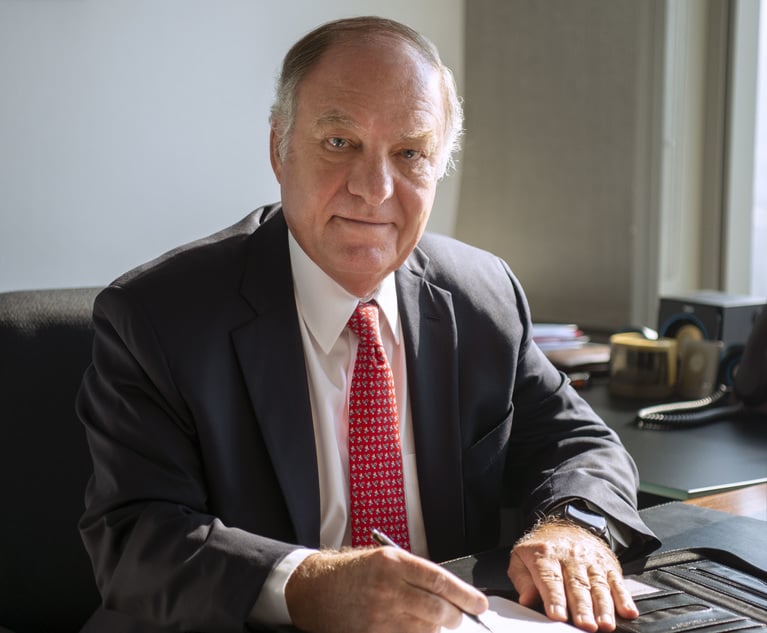Twitter challenges courts on injunctions ahead of key Mosley privacy ruling
UK courts are facing a growing challenge over the enforcement of privacy orders after a number of Twitter users deployed the social media site to thwart injunctions. Comments posted on the site over the weekend claimed to identify a number of celebrities and footballers allegedly using controversial injunctions in an attempt to prevent the press from revealing details of their private lives. One public figure cited on the site has already used their own Twitter account to deny that they have taken out such an injunction.
May 09, 2011 at 09:47 AM
3 minute read
UK courts are facing a growing challenge over the enforcement of privacy orders after a number of Twitter users deployed the social media site to thwart injunctions.
Comments posted on the site over the weekend claimed to identify a number of celebrities and footballers allegedly using controversial injunctions in an attempt to prevent the press from revealing details of their private lives. One public figure cited on the site has already used their own Twitter account to deny that they have taken out such an injunction.
The episode is the latest in a series of attempts by users of the popular micro-blogging site to name celebrities alleged to have obtained privacy injunctions amid a growing campaign in the media against what is claimed to be judge-made privacy law.
Several MPs have recently spoken out against the measures, which are increasingly being used by celebrities to protect their privacy, with some calling for Parliament to introduce its own privacy law to provide clearer guidelines about the use of injunctions.
Much domestic privacy law is derived from the Human Rights Act 1998, which incorporated the European Convention on Human Rights, specifically article eight, which grants a right to a private family life.
Commenting on the Twitter debate, Davenport Lyons defamation and privacy partner Robin Shaw said: "The news today that a Twitter user has used the service to reveal supposed details of celebrities' private lives that were hidden by superinjunctions or anonymity orders demonstrates, as with the internet, that these kinds of court orders can never be guaranteed to achieve their purpose of stopping a member of the public finding out about what they are meant to be gagged from knowing."
Reynolds Porter Chamberlain media partner Keith Mathieson added: "There is no doubt that social media such as Twitter poses significant challenges to the courts which are trying to uphold privacy measures. It is very difficult to predict how the courts will react to social media that is intent on undermining their decisions, but I believe that they will continue to attempt to uphold the principle of the privacy cases."
News of the Twitter leaks comes with the European Court of Human Rights expected to this week rule on a landmark privacy case involving former Formula 1 boss Max Mosley (pictured), who argues that the media should be required give advance notice to individuals before writing stories affecting their private lives.
Meanwhile, a report by Lord Neuberger is due to be published later this month looking at so-called superinjunctions, which ban reporting not just the name of individuals involved but also the existence of the injunction itself.
See this Thursday's Legal Week for an extended focus on defamation and privacy law. For more analysis, see Breaching so-called 'superinjunctions' on Twitter: is this how low we've sunk?
This content has been archived. It is available through our partners, LexisNexis® and Bloomberg Law.
To view this content, please continue to their sites.
Not a Lexis Subscriber?
Subscribe Now
Not a Bloomberg Law Subscriber?
Subscribe Now
NOT FOR REPRINT
© 2025 ALM Global, LLC, All Rights Reserved. Request academic re-use from www.copyright.com. All other uses, submit a request to [email protected]. For more information visit Asset & Logo Licensing.
You Might Like
View All
Carey Abogados’ Senior Partner Becomes New Head of IBA, First Chilean to Assume Role of President

Goodwin Hires Quinn Emanuel Antitrust Partner to Launch Brussels Office
3 minute read
Claus von Wobeser: Mexico's ‘Godfather of Arbitration’ Becomes Firm’s Honorary Chair

Jenner & Block Expands London Team with Baker McKenzie Hire to Lead New Practice Area
2 minute readTrending Stories
- 1Exploring the Opportunities and Risks for Generative AI and Corporate Databases: An Introduction
- 2Farella Elevates First Female Firmwide Managing Partners
- 3Family Court 2024 Roundup: Part I
- 4In-House Lawyers Are Focused on Employment and Cybersecurity Disputes, But Looking Out for Conflict Over AI
- 5A Simple 'Trial Lawyer' Goes to the Supreme Court
Who Got The Work
J. Brugh Lower of Gibbons has entered an appearance for industrial equipment supplier Devco Corporation in a pending trademark infringement lawsuit. The suit, accusing the defendant of selling knock-off Graco products, was filed Dec. 18 in New Jersey District Court by Rivkin Radler on behalf of Graco Inc. and Graco Minnesota. The case, assigned to U.S. District Judge Zahid N. Quraishi, is 3:24-cv-11294, Graco Inc. et al v. Devco Corporation.
Who Got The Work
Rebecca Maller-Stein and Kent A. Yalowitz of Arnold & Porter Kaye Scholer have entered their appearances for Hanaco Venture Capital and its executives, Lior Prosor and David Frankel, in a pending securities lawsuit. The action, filed on Dec. 24 in New York Southern District Court by Zell, Aron & Co. on behalf of Goldeneye Advisors, accuses the defendants of negligently and fraudulently managing the plaintiff's $1 million investment. The case, assigned to U.S. District Judge Vernon S. Broderick, is 1:24-cv-09918, Goldeneye Advisors, LLC v. Hanaco Venture Capital, Ltd. et al.
Who Got The Work
Attorneys from A&O Shearman has stepped in as defense counsel for Toronto-Dominion Bank and other defendants in a pending securities class action. The suit, filed Dec. 11 in New York Southern District Court by Bleichmar Fonti & Auld, accuses the defendants of concealing the bank's 'pervasive' deficiencies in regards to its compliance with the Bank Secrecy Act and the quality of its anti-money laundering controls. The case, assigned to U.S. District Judge Arun Subramanian, is 1:24-cv-09445, Gonzalez v. The Toronto-Dominion Bank et al.
Who Got The Work
Crown Castle International, a Pennsylvania company providing shared communications infrastructure, has turned to Luke D. Wolf of Gordon Rees Scully Mansukhani to fend off a pending breach-of-contract lawsuit. The court action, filed Nov. 25 in Michigan Eastern District Court by Hooper Hathaway PC on behalf of The Town Residences LLC, accuses Crown Castle of failing to transfer approximately $30,000 in utility payments from T-Mobile in breach of a roof-top lease and assignment agreement. The case, assigned to U.S. District Judge Susan K. Declercq, is 2:24-cv-13131, The Town Residences LLC v. T-Mobile US, Inc. et al.
Who Got The Work
Wilfred P. Coronato and Daniel M. Schwartz of McCarter & English have stepped in as defense counsel to Electrolux Home Products Inc. in a pending product liability lawsuit. The court action, filed Nov. 26 in New York Eastern District Court by Poulos Lopiccolo PC and Nagel Rice LLP on behalf of David Stern, alleges that the defendant's refrigerators’ drawers and shelving repeatedly break and fall apart within months after purchase. The case, assigned to U.S. District Judge Joan M. Azrack, is 2:24-cv-08204, Stern v. Electrolux Home Products, Inc.
Featured Firms
Law Offices of Gary Martin Hays & Associates, P.C.
(470) 294-1674
Law Offices of Mark E. Salomone
(857) 444-6468
Smith & Hassler
(713) 739-1250








